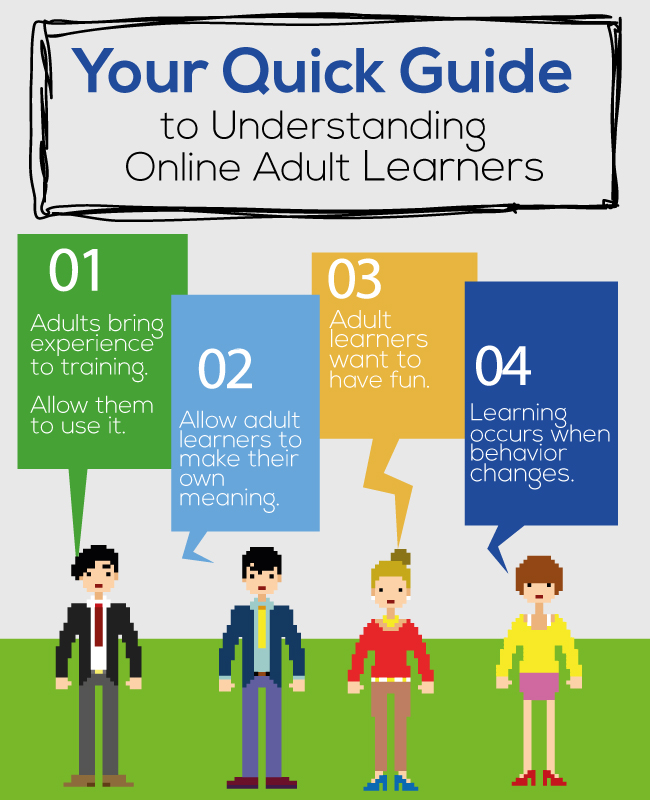I once had an interview where I was asked: “What is unique about adult learners?” and my brain froze up, even though I have studied learning for years. Thank goodness once I started talking I was able to pull from the depths of my brain to provide the fundamental answer:
Adults Learn Best by Applying Information to Current, Real-World Needs
The significance of this, of course, is that training and development methods need to include the learner’s actual application of new information and methods in the workplace to a real-life problem. It’s often difficult for learners to translate discussion about simulated situations (e.g., case studies) back to the workplace.
What else is unique about adult learners? Here is a list:
- Adults need to be actively involved in the learning.
- Adult learners are self-directed
- Adult learning is generally more problem centered rather than subject centered
- The learning must be relevant to everyday work needs
- It must be structured so that participants can see where they are going and why.
- Adult participants must have time to voice opinions and personal experiences
- They must feel that they are helping to shape the direction of the learning
- They need room in the training to reflect and speculate
- Adults learn best when challenged
- Adults need time to practice new skills
- They must have ample time to discuss
- Part of the learning should be experiential
- Learning should be ongoing where concepts can be reinforced and expanded
- Adults are more internally motivated rather than externally motivated
Finally, a word about feedback
Learners benefit a great deal from ongoing feedback when applying new information and materials to a real-life scenario. Ideally, training should give learners the opportunity to process the results of applying new information and methods: what they thought would happen, what actually happened and why, and what they gained from the experience.
This is much harder in elearning than in an instructor led course, where a debrief session would provide all of this. What are some ways to provide feedback in elearning courses?
